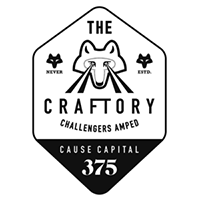The Deceptive Attractiveness of “Non-Consumer-Noticeables”
Shining a light on the slippery slope challenger brands know not to go down.
One of human nature’s notable paradoxes is mankind’s ability to do things that are objectively wrong and ethically reprehensible, while nevertheless leaving the perpetrator with a spotlessly clear conscience, and an unblemished sense of entitlement.
It happens all around us: clean-cut businessmen lie on their expense claims. Upstanding citizens steal music. Venerable corporations cheat on emissions. And affable heads of state incite genocide. All with clean conscience. It’s a puzzling contradiction, but a universally common problem – and one that applies in equal measure to the choices around formulation, ingredients and supply-chain made by consumer brands. It’s why big chocolate has done nothing about the fact that 80% of cocoa beans are harvested by slaves and child labour. It’s why the meat industry is relaxed about the overuse of antibiotics and plumping meat with water injections. And it’s why humble mayonnaise turns from a delicious and decidedly perishable condiment made with raw eggs, into a plastic slop with a miraculous 6-month shelf life, thanks to generous lashings of industrial preservatives, flavour enhancers, and anti-oxidants. Bon appetit.
The process by which humans metamorphosise from exemplars to ogres is referred to in social science as “Moral Creep”. Understanding why it happens, and how it can turn fine folk into willing scoundrels, provides an invaluable compass for challenger entrepreneurs keen to stay true to their cause.
Most people do questionable things knowing they’re not right. However they do them because they’ve shifted to a moral framework justifying it. It’s rare for this to happen in one step, going from black to white. Instead, it’s a deceptively subtle process of salami-slicing shades of grey, often over periods of years, and frequently involving peer affirmation, by the end of which people who consider themselves honest folk of high integrity, willingly do ugly things.
Parenting and education instil in children the unambiguous moral framework of their time. Children are taught in simple terms what is right and wrong. They’re also taught to feel shame if they act outside the framework. Shame is the fear of disapproval and social exclusion. Children don’t feel bad for doing something wrong per se, they feel bad because they fear the parental and societal consequences. And therein lies the crack from which Moral Creep propagates: if acting outside the received framework doesn’t lead to disapproval or exclusion, it becomes the new acceptable framework. Expense cheats feel relaxed about their inflated claims because their colleagues do it too. VW was happy to fiddle its emissions tests because they all agreed to take the test standards by the (imperfect) letter of the regulation, and not the (manifest) spirit thereof. Factions incite genocide because they convince themselves that their survival depends on the eradication of others’. In so doing, each of the above crept from the universally accepted framework to a locally modified one – and from there the next step is an easy one.
So what does this have to do with consumer brands? As it happens, everything. No P&G or Kraft Heinz ever set out to sell products that might be bad for consumers or the planet. But they do. And no, no big CPG would have ever considered themselves slave drivers, but by taking no action over the modern slavery in their supply chains, effectively they are. The relentless pursuit of ever-greater efficiency in the delivery of functional benefits means Big Brands are forever tempted to cut corners and thereby take a further step down the slippery slope of Moral Creep.
It begins by replacing expensive sugar with inverted corn syrup. It continues with extending shelf life by adding chemical stabilisers and anti-oxidants. It ends with turning a blind eye to slavery. “Non-consumer-noticeables” is the technical term used in the FMCG industry to denote the variables that are fair game in the pursuit of efficiency. Big Brands’ stepping stone for Moral Creep is the acceptance that it is ok to compromise, provided the consumer doesn’t notice the trade-off, and that the result makes the products either cheaper or more profitable.
Of course, removing wastefulness and inefficiency are generally good things, and the lifeblood of healthy competition. But it is the definition of what constitutes undesirable wastefulness to eliminate, vs core principles not to compromise, that is so tricky to stick to. Both sugar and inverted corn syrup are equally sweet. One is natural, the other a chemical product at a fraction of the cost. Adding preservatives and chemical stabilisers to fresh foods dramatically extends their shelf life. Children picking cocoa beans in faraway Africa keeps down the price of chocolate bars. Seeing the line in the heat of competition can be remarkably hard, and much of Big Business has got it wrong over time.
So what to do? My Italian friends put it well when they warn: “keep slicing the salami, and in the end you’re left with the ugly butt”. The Craftory’s advice to insurgent brand entrepreneurs everywhere is simple: beware the attractiveness of corners cut, even if everyone else seems to be cutting away with carefree abandon. In the end consumers do realise they’re eating plastic slop and not natural mayonnaise. And they do learn that their chocolate is tainted. That’s when they turn their backs on the Big Brand incumbents, and adopt your brand, true to cause, for life.
Ernesto Schmitt is co-founder at The Craftory, the brand-new counter-corporate anti-VC on a $300M mission to back the world's boldest insurgent challenger brands in the consumer goods space.


